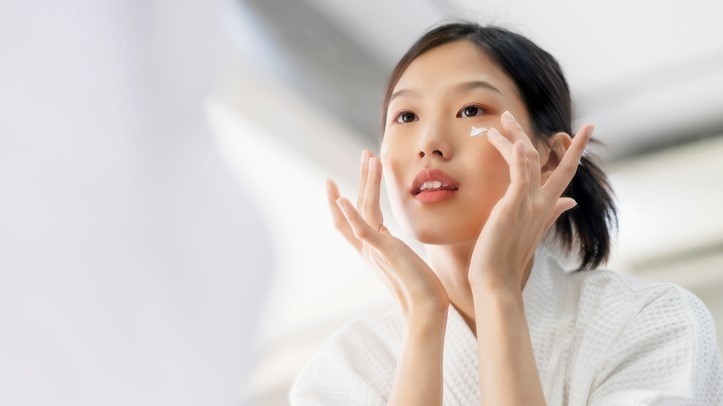Cosmetics-associated dermatoses: How China is pioneering online courses to raise awareness and improve skin health

A research team led by the Center of Cosmetics Evaluation in Chengdu said that the incidence of cosmetics-associated dermatoses is on the rise, while the awareness and knowledge about the proper use of cosmetics are insufficient among the public and specialists due to limited education.
Therefore, the offered medical information via a “massive open online course” that was free to access. An online questionnaire was also sent to evaluate the effectiveness of the course.
Nearly 540,000 learners have been enrolled on the course since 2014.
In its accompanying discussion forum, there were 8,383 posts and 73,014 replies, where learners were mostly concerned about topics of sun protection, cleansing and proper utilisation of cosmetics in some skin diseases.
A total of 645 learners answered the questionnaire with 88.84% of the them reporting that they had changed skin care practices, while 50.39% reported improvement in skin health.
“Moreover, participants who completed the course reported better understanding and utilisation of cosmetics-related knowledge (p values < 0.05). 72.09% of respondents were willing to recommend this course to others,” stated the researchers in the journal Frontiers in Public Health.
They pointed out that the traditional education of dermatology in China does not involve cosmetic-related courses, which hinders medical students and even dermatologists to recognise the importance of cosmetics for both normal skin and skin diseases.
“Thus, imparting cosmetics-related knowledge through online courses, can not only make up for the shortcomings of traditional teaching mode, but also enable students actively explore their interested information, and at the same time, provide the public with scientific cosmetics-related knowledge, thus to reduce the occurrence of cosmetics-related skin diseases,” they added.
The course content comprised of three categories; category one is about the manufacture of cosmetics; category two is about functions of common cosmetics, such as moisturisers, sunscreen, facial masks, perfumes; and category three is cosmetics-associated dermatology.
This 15-week course consisted of 15 lessons, which was divided into three-to-five videos lasting 10–15 min. Participants had the options of watching videos online or downloading them to portable devices; this ensured that learners were able to study whenever convenient and review specific content repeatedly at will.
Coupled with each lesson, weekly homework assignments and quizzes were launched to further reinforce learning as well as enhance participants' practical application of course content.
In addition, the website offered a forum for after-class discussions between learners and teaching staff, aiming to generate communication opportunities and emulate the atmosphere of a realistic classroom setting.
After eight years’ of operation, the researchers concluded: “This has proven to be a feasible approach to imparting knowledge about cosmetics and associated dermatology and improving skin care practices and skin conditions. Participants can benefit from the course even if they fail to complete it. Educating people in this manner could contribute to lowering incidence of cosmetics-associated dermatoses.”
Source: Frontiers in Public Health
https://doi.org/10.3389/fpubh.2022.951481
An online course about cosmetics improves skin care practices and skin health
Authors: Yu Li, et al





![Indus Valley is working to corner 30% of India's online premium boxed hair colour market. [Indus Valley]](/var/wrbm_gb_food_pharma/storage/images/_aliases/wrbm_tiny/publications/cosmetics/cosmeticsdesign-asia.com/article/2024/07/26/indus-valley-aims-to-secure-30-of-india-s-online-premium-hair-colour-market-with-organic-offerings/17594932-5-eng-GB/Indus-Valley-aims-to-secure-30-of-India-s-online-premium-hair-colour-market-with-organic-offerings.jpg)
![[Getty Images]](/var/wrbm_gb_food_pharma/storage/images/_aliases/wrbm_tiny/publications/cosmetics/cosmeticsdesign-asia.com/china/china-focus-latest-developments-in-china-s-booming-beauty-market25/17606695-1-eng-GB/China-focus-Latest-developments-in-China-s-booming-beauty-market.jpg)
![Kosé has launched makeup brand Visée in Singapore as part of plans to reinforce its position in SEA. [Visée]](/var/wrbm_gb_food_pharma/storage/images/_aliases/wrbm_tiny/publications/cosmetics/cosmeticsdesign-asia.com/headlines/business-financial/visee-singapore-kose-aims-to-enhance-brand-visibility-in-sea-with-new-launch/17587264-1-eng-GB/Visee-Singapore-Kose-aims-to-enhance-brand-visibility-in-SEA-with-new-launch.jpg)
![ble C&C is set on reinforcing its competitiveness in China’s beauty market. [Missha]](/var/wrbm_gb_food_pharma/storage/images/_aliases/wrbm_tiny/publications/cosmetics/cosmeticsdesign-asia.com/headlines/business-financial/able-c-c-aims-to-strengthen-competitiveness-in-china-through-online-expansion-kol-collabs/17591626-1-eng-GB/Able-C-C-aims-to-strengthen-competitiveness-in-China-through-online-expansion-KOL-collabs.jpg)

![LG H&H genetic study says 23 genetic regions affect natural skin tone. [Getty Images]](/var/wrbm_gb_food_pharma/storage/images/_aliases/wrbm_tiny/publications/cosmetics/cosmeticsdesign-asia.com/article/2024/07/23/lg-h-h-discovery-of-genetic-skin-tone-factors-in-east-asians-potentially-key-to-skin-radiance-developments/17587210-1-eng-GB/LG-H-H-discovery-of-genetic-skin-tone-factors-in-East-Asians-potentially-key-to-skin-radiance-developments.jpg)

![DR.CI:LABO expects brand-supplier partnerships gain more public prominence as consumers interest in skin care grows online. [Dr.Ci:Labo]](/var/wrbm_gb_food_pharma/storage/images/_aliases/wrbm_tiny/publications/cosmetics/cosmeticsdesign-asia.com/article/2024/07/22/brand-supplier-partnerships-will-come-to-the-fore-amid-the-online-skin-care-landscape-dr.ci-labo/17576755-1-eng-GB/Brand-supplier-partnerships-will-come-to-the-fore-amid-the-online-skin-care-landscape-DR.CI-LABO.png)


